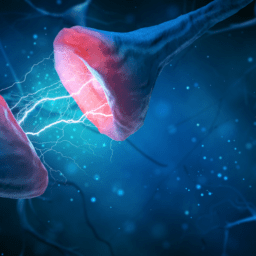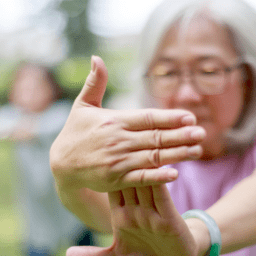In this conversation, Kirsti Peterson and her son Elliott Lehn discuss how they navigate Parkinson’s together.
Kirsti Peterson was 46 when she was diagnosed with Parkinson’s. Her son Elliott was a teenager. Early in her experience living with Parkinson’s, Kirsti experienced impulse control disorder (ICD) involving compulsive purchasing, punding, and other related behavior. Kirsti’s participation in a clinical trial worsened these complications. She also had other health issues arise during this time.
Meanwhile, Elliott was navigating his own transitions: In addition to the adjustments related to being a young teenager, Elliott was adjusting to his parents’ divorce and his brother’s departure for college. He was in a car accident where he suffered a serious concussion, and all the while, he was doing the hard, personal work of figuring out how to manage his relationship to his mother’s Parkinson’s diagnosis.
Any one of these circumstances could have created rifts in any family, but–as you can see in the recording above–Kirsti and Elliott continue to have a strong relationship as they live well with Parkinson’s together.
Three Important Takeaways From This Conversation
While there are so many interesting and important aspects of Kirsti and Elliott’s story, keep these three key suggestions in mind:
1. Ask About Possible Side Effects of Changes in Your Treatment
While Kirsti was experiencing ICD, she and Elliott both struggled to understand what was going on. At one point, Elliott came home to find the furniture in different places and blocking his way to his room. It took time for Kirsti and Elliott to understand what was going on. Discuss all side effects and changes of mood or behavior with your care team and your family–especially when you’re adjusting any aspect of your treatment plan.
If you experience compulsive behavior, know that there are ways to treat ICD.
2. Be Careful with Dopamine Agonists and Clinical Trials
Dopamine agonists are associated with impulse control disorders. Multiple factors increase the likelihood of experiencing ICD, including taking a dopamine agonist while also taking levodopa.
For this reason, it’s important to talk with researchers about possible interactions before you begin any clinical trial. While researchers tend to be very careful and attentive to safety, raising questions about drug interactions can prompt more in-depth consideration of your situation and the side effects you might experience from trial participation.
Another thing to be careful about with regard to dopamine agonists is dopamine agonist withdrawal syndrome (DAWS). If you suddenly stop taking a dopamine agonist, you might experience symptoms of withdrawal. DAWS may involve dramatic worsening of Parkinson’s symptoms, fever, extreme fatigue, and panic attacks. Taking high doses of a dopamine agonist, experiencing ICD while taking a dopamine agonist, and having DBS are all associated with increased likelihood of DAWS.
To manage and reduce risks associated with DAWS, work with a care provider to slowly taper off dopamine agonists.
3. Social isolation Makes Things Harder
When asked what resources he wished he had during the most challenging periods of life with Parkinson’s, Elliott said he would have benefited from being part of a community and connecting with people who would listen–even if they didn’t understand exactly what he was going through.
Candid communication can be extremely helpful in navigating the challenges of life with Parkinson’s. Kirsti believes it would have been better if she had someone else with her when she enrolled in the clinical trial that factored into her ICD experience. You receive a lot of information when you meet with a care provider or a researcher, and having a friend or family member with you at all appointments can help keep track of it all.
A Message of Hope
DBS has improved management of Kirsti’s symptoms, and Elliott is exploring how to find more time and space to explore his passions. Amidst changing circumstances, they continue to navigate life with Parkinson’s together.
This highlights a powerful message of hope: There are so many ways to live well with Parkinson’s. With attention, reflection, and careful communication, you can find a way through any challenges Parkinson’s presents you with–just like Kirsti and Elliott.
ADDITIONAL RESOURCES
Diagnosis and Treatment of Impulse Control Disorders
Dopamine Agonist Withdrawal Syndrome in Parkinson’s
Clinical Trial Webinar with Peter Schmidt and Mark Stacy
 WANT MORE PRACTICAL ARTICLES LIKE THIS?
WANT MORE PRACTICAL ARTICLES LIKE THIS?
You can learn much more about living well with Parkinson’s today through our Every Victory Counts® suite of resources. Each manual is packed with up-to-date information about everything Parkinson’s. Click the link below to reserve your manual(s).
Thank you to our 2023 Peak Partners, AbbVie Grants and Amneal, and for their ongoing support of these must-have manuals. Additionally, we’d like to thank Barbara and Dale Ankenman, Abby and Ken Dawkins, Bonnie Gibbons, Gail Gitin in loving memory of Gene Gitin, Irwin Narter, and Lorraine and J Wilson for their generous donations that allow us to make these resources available and free to all.

















